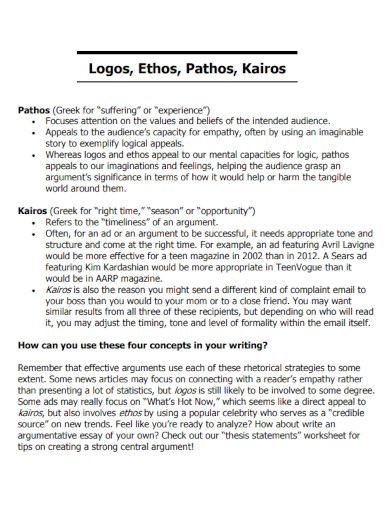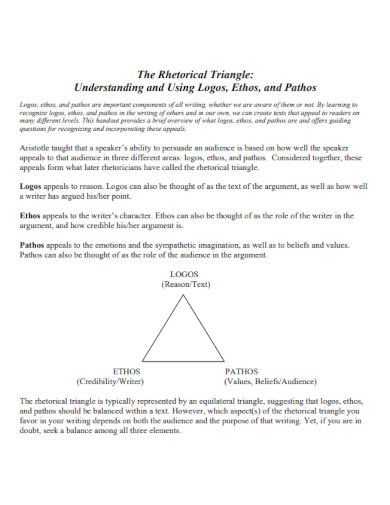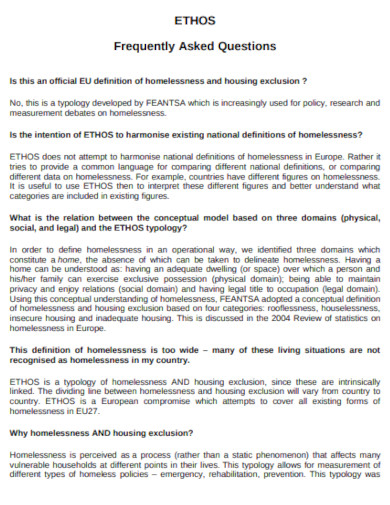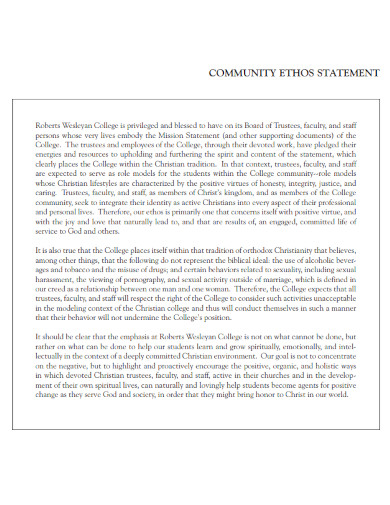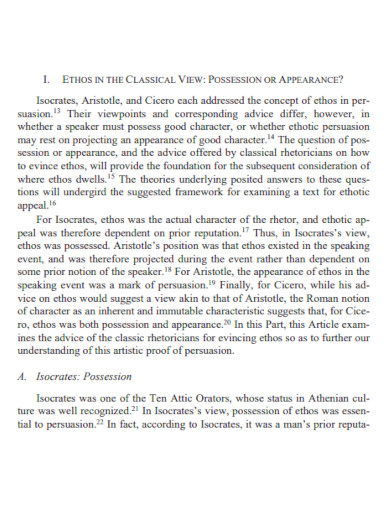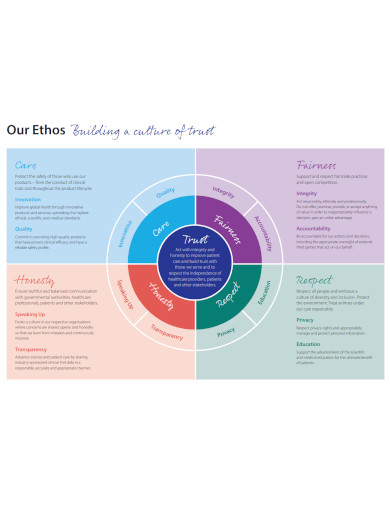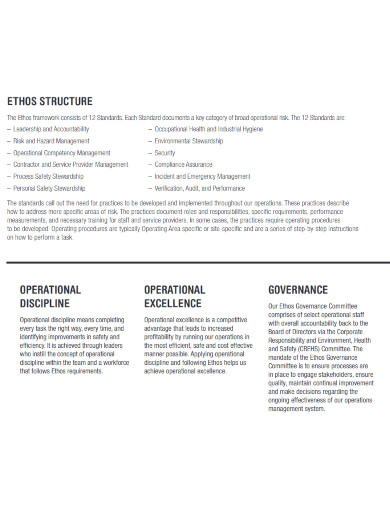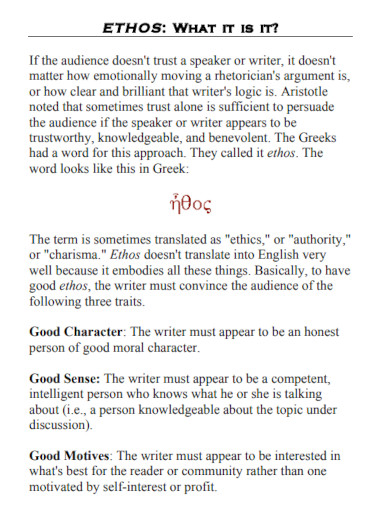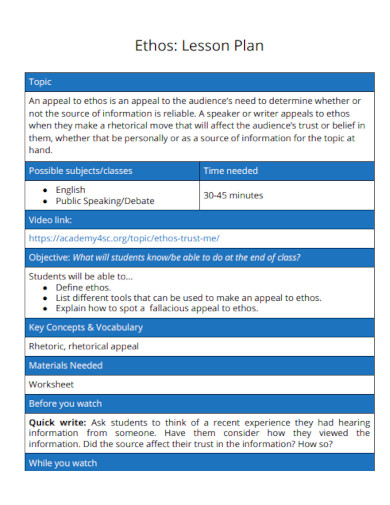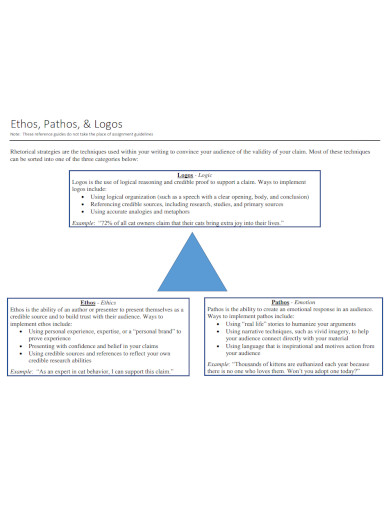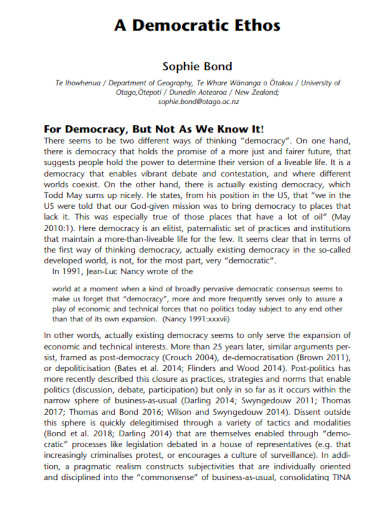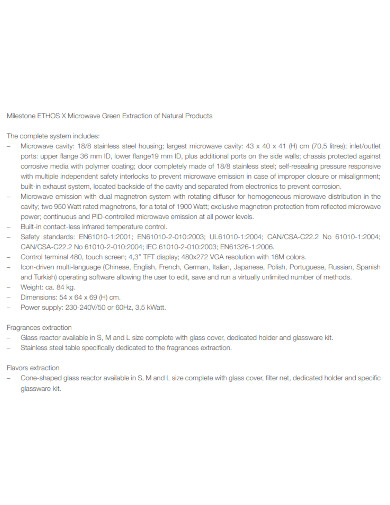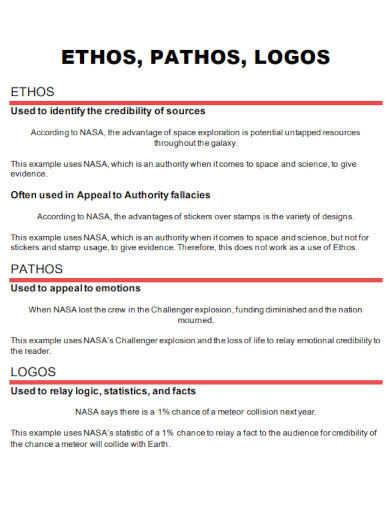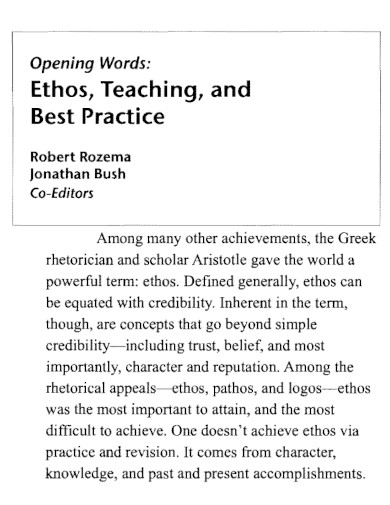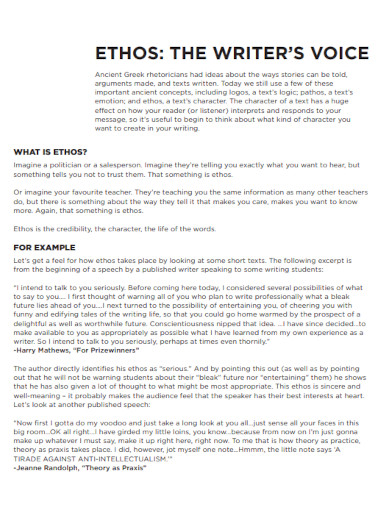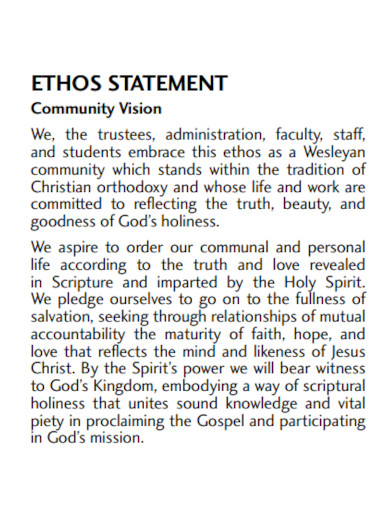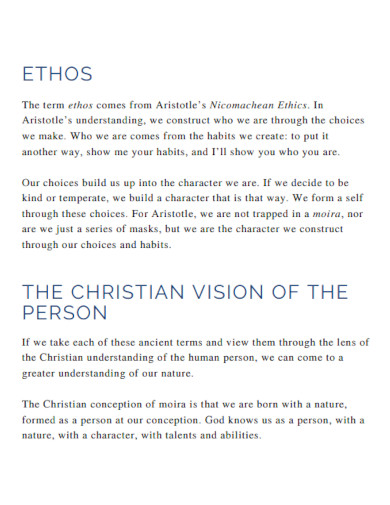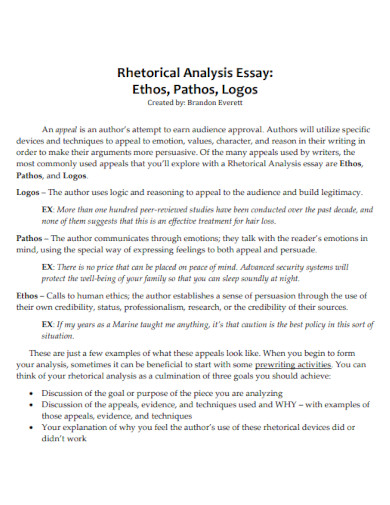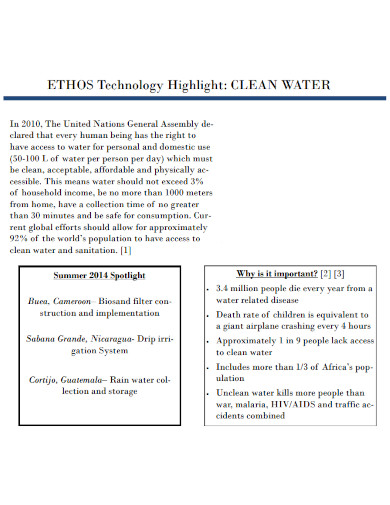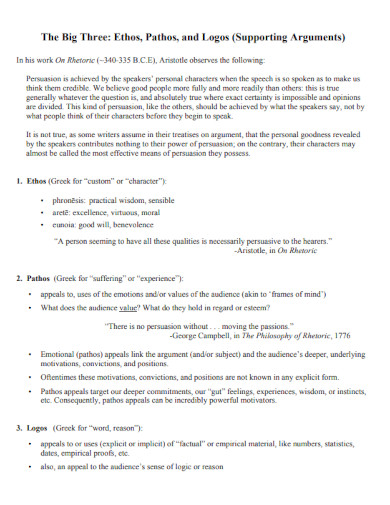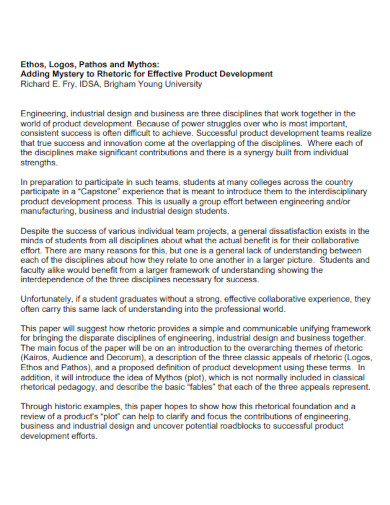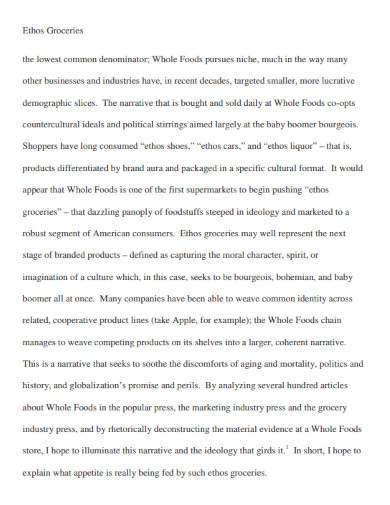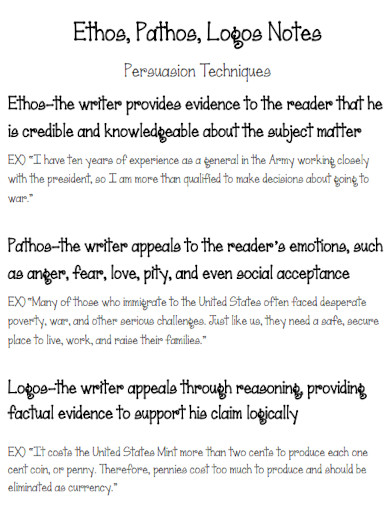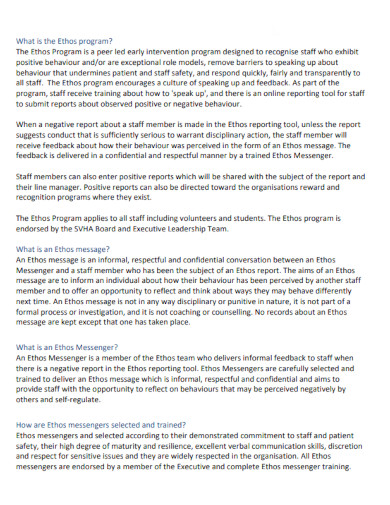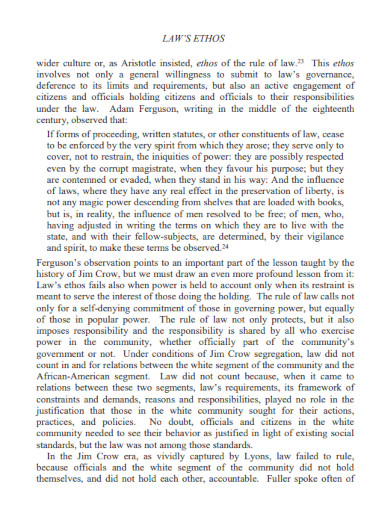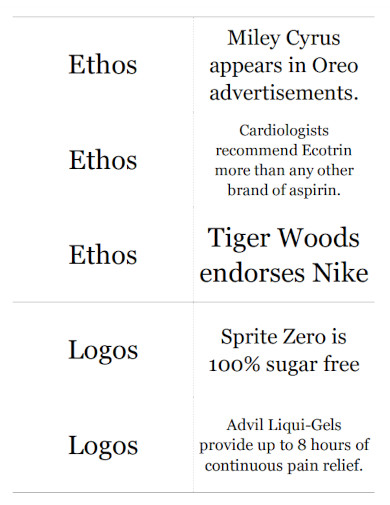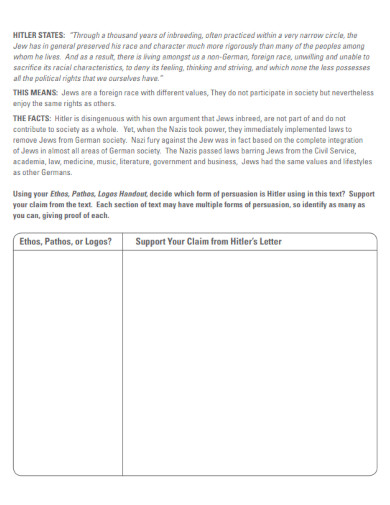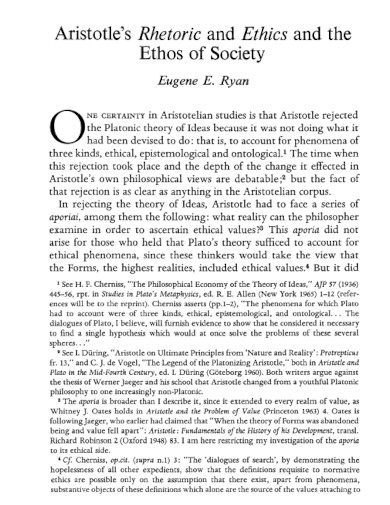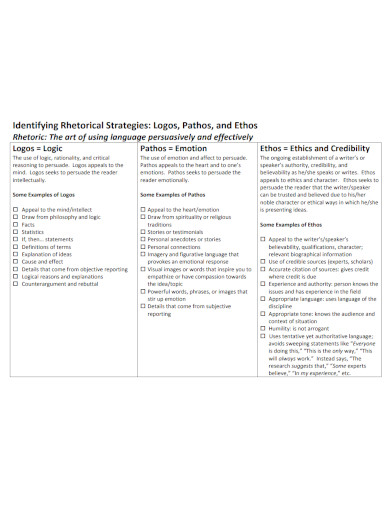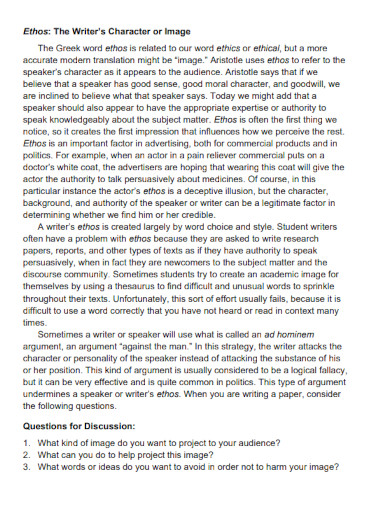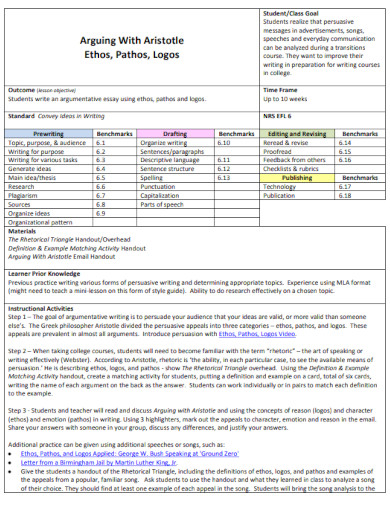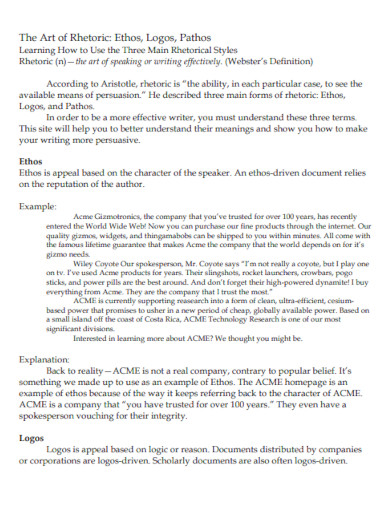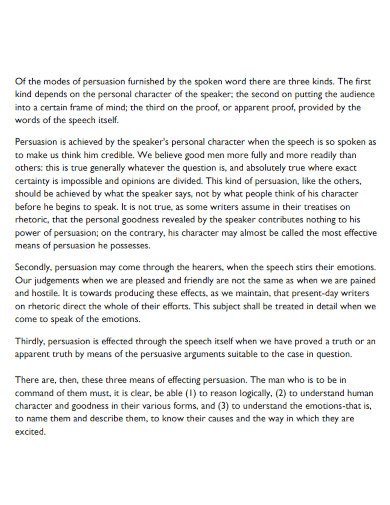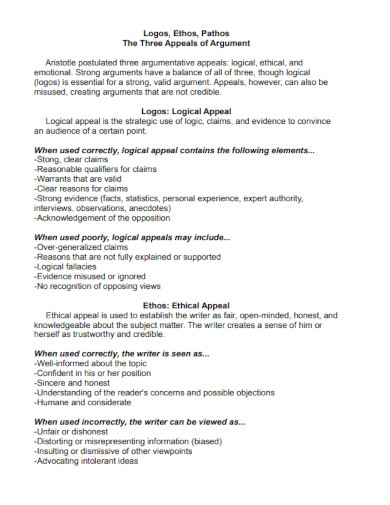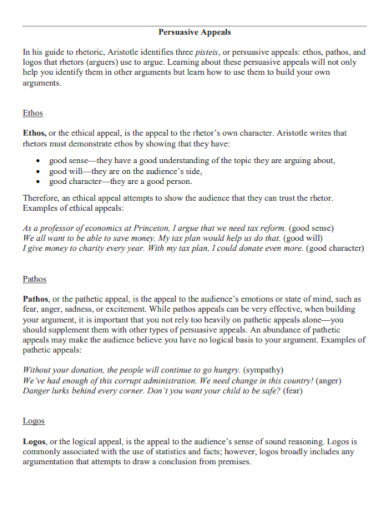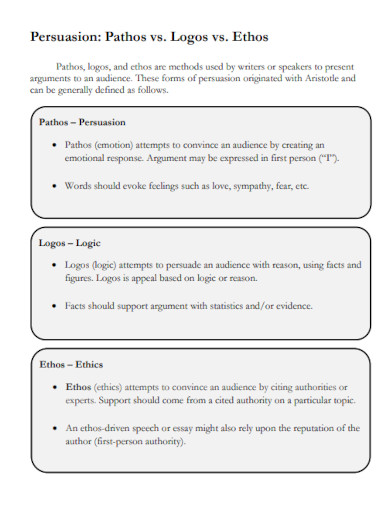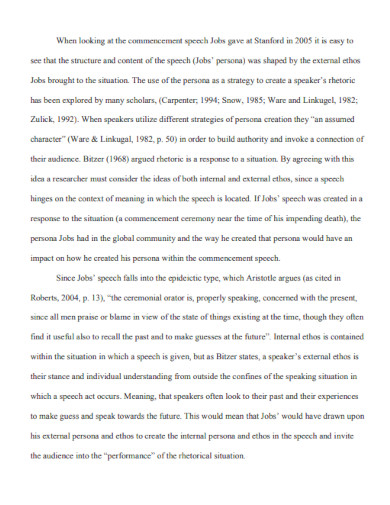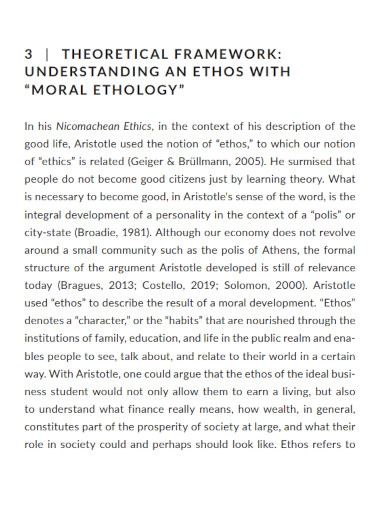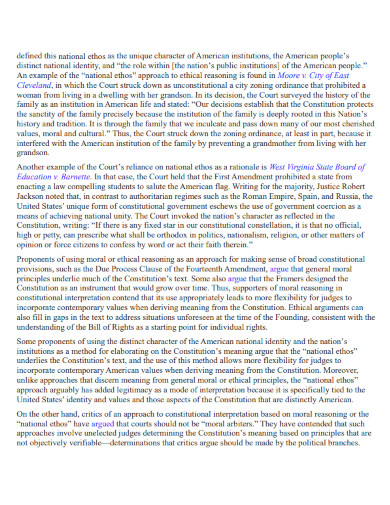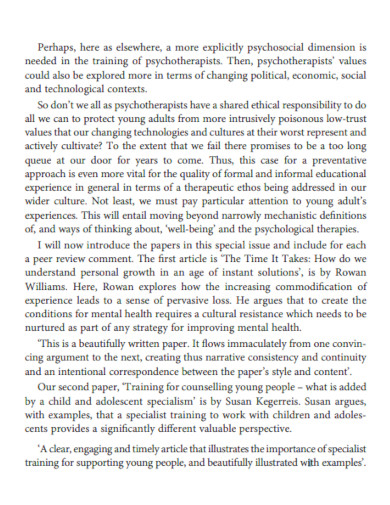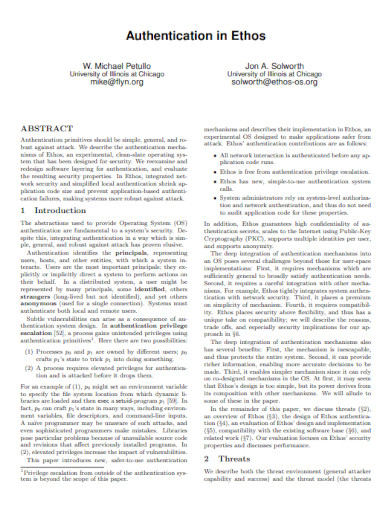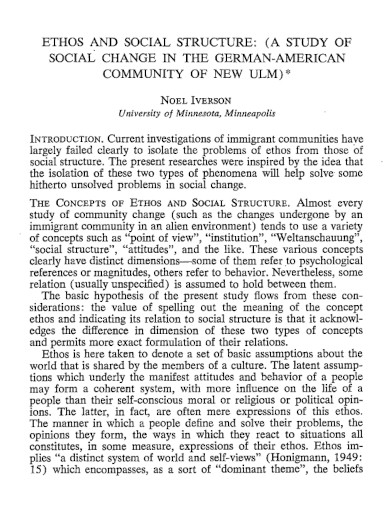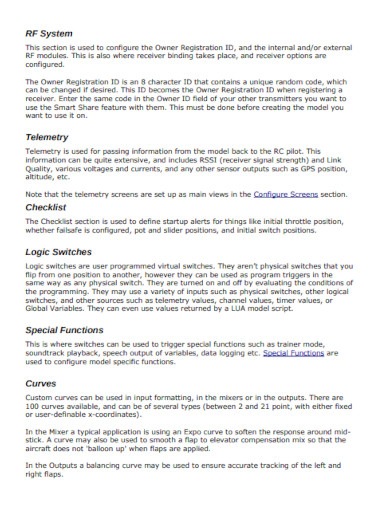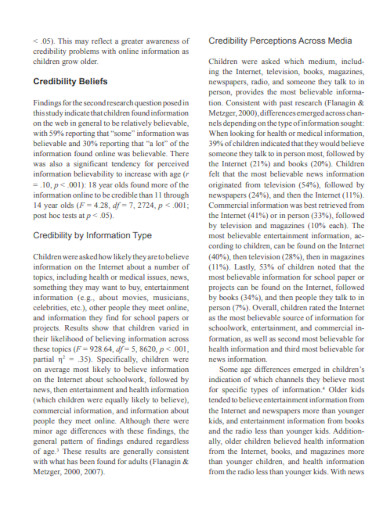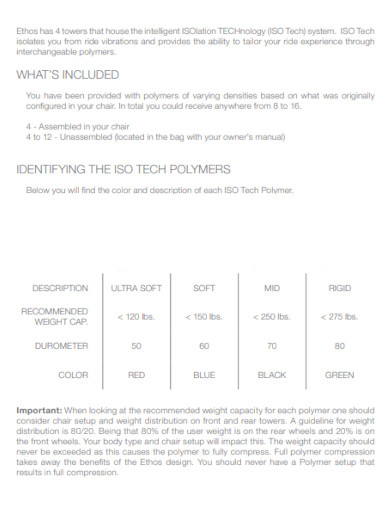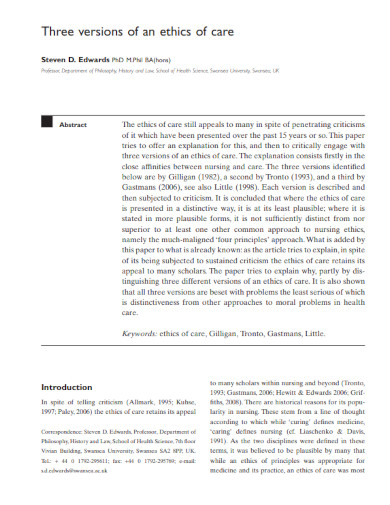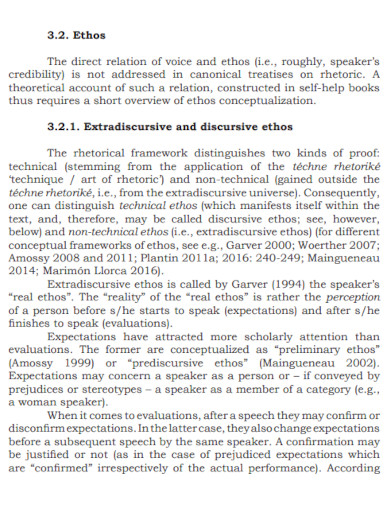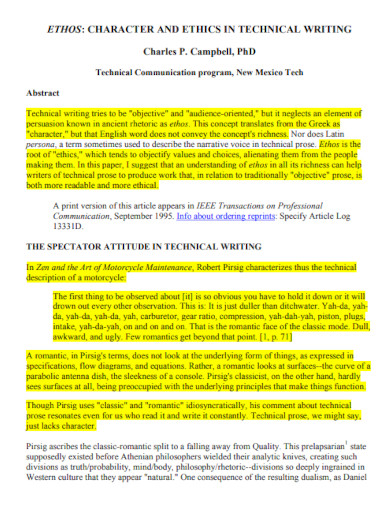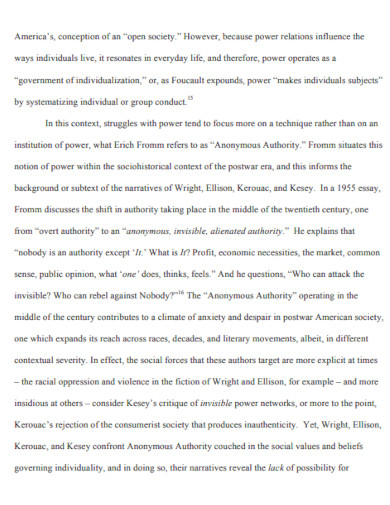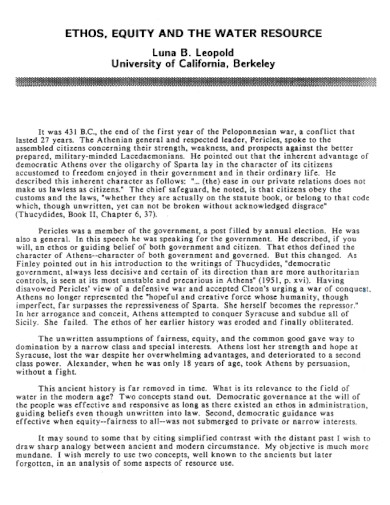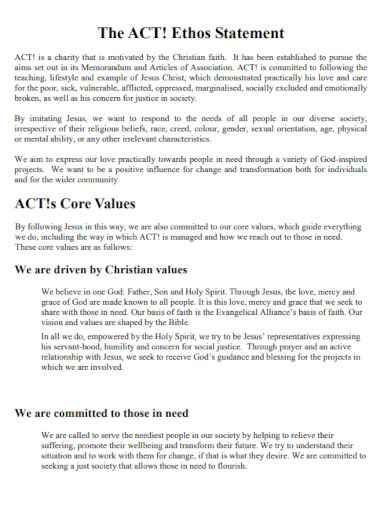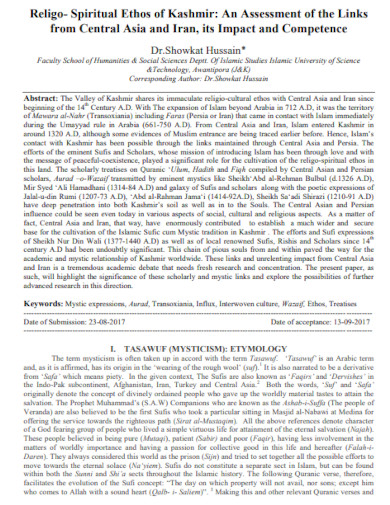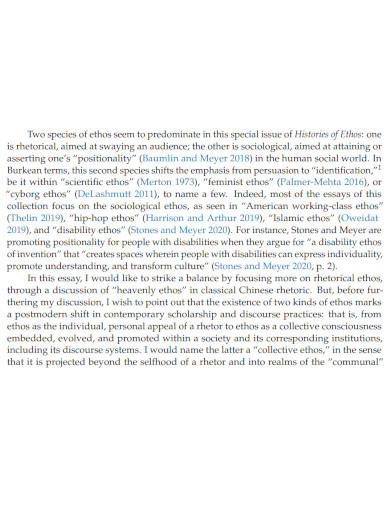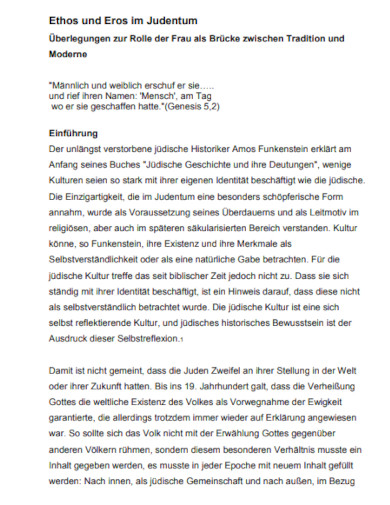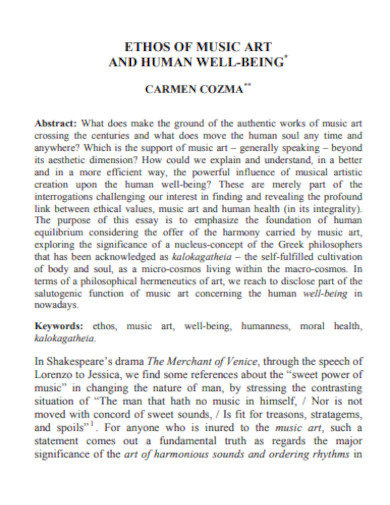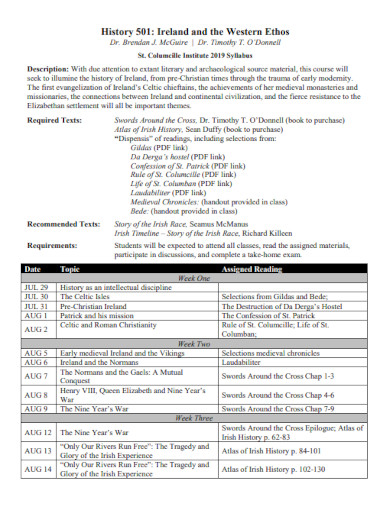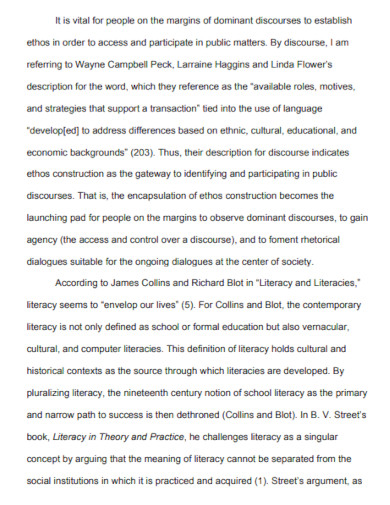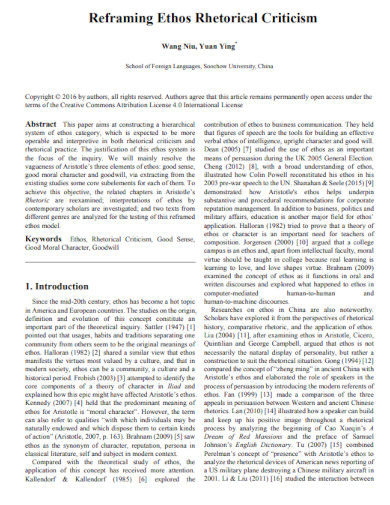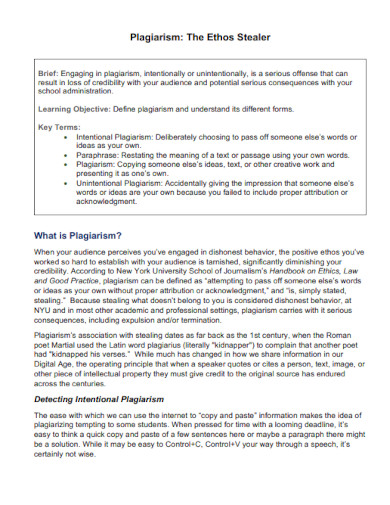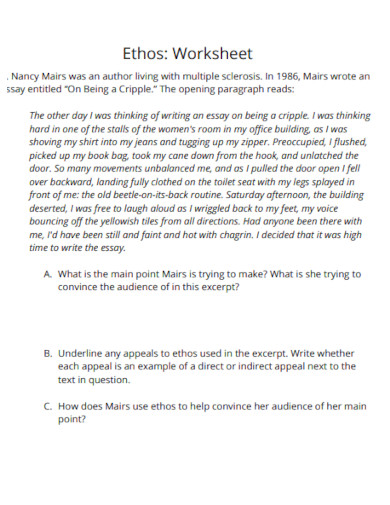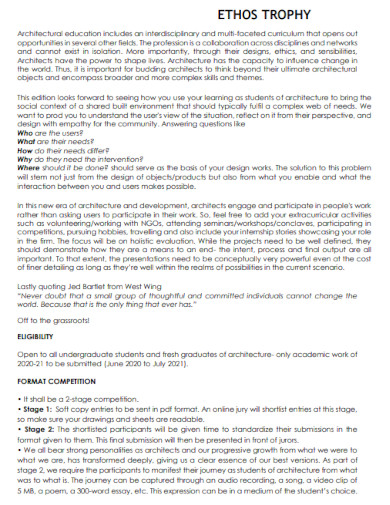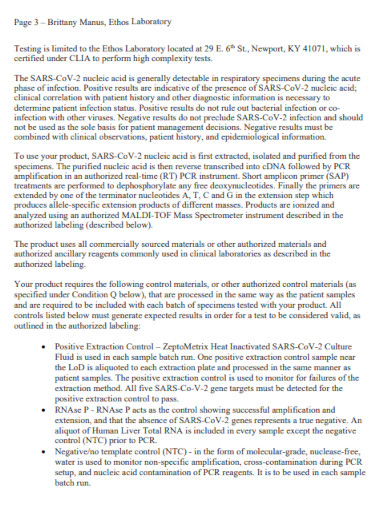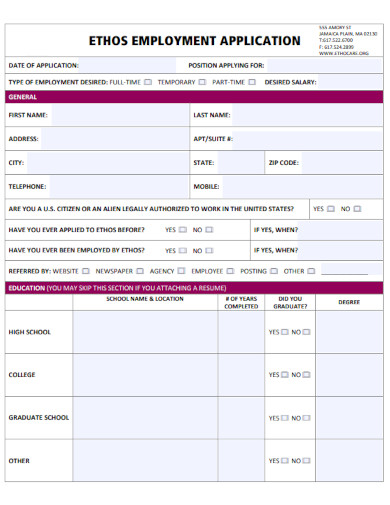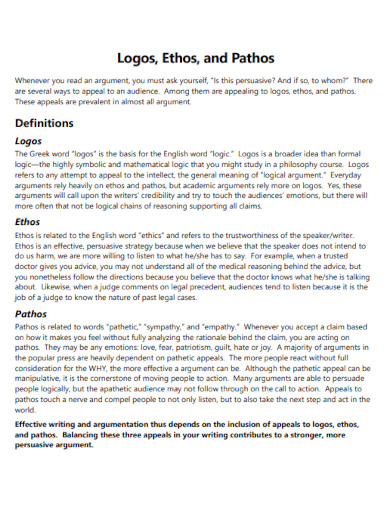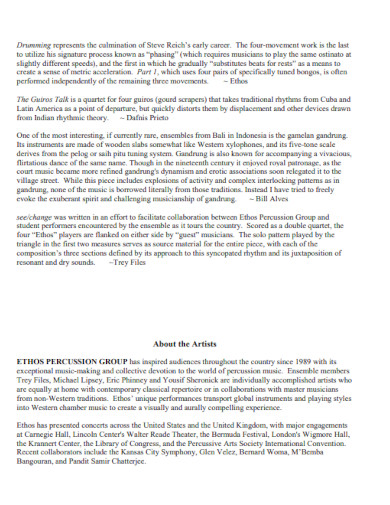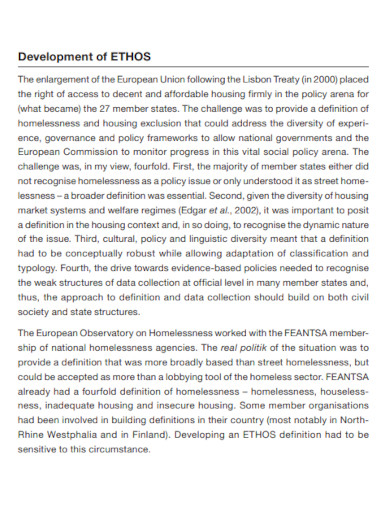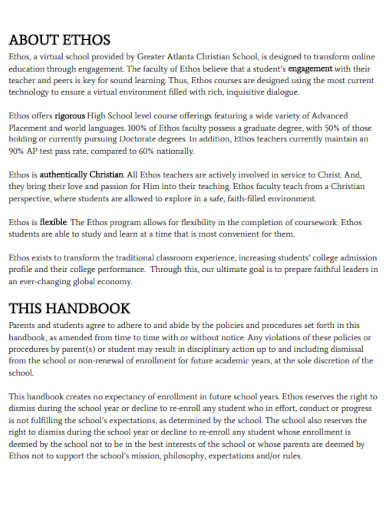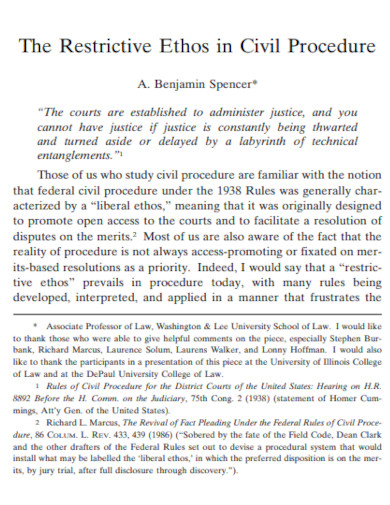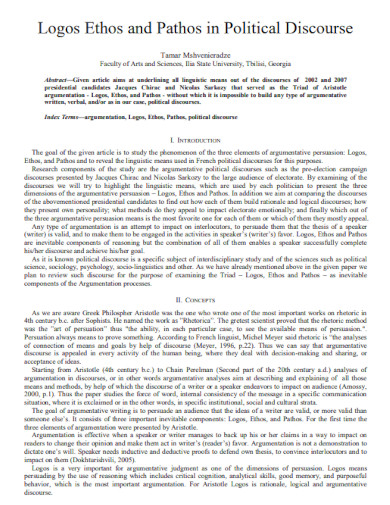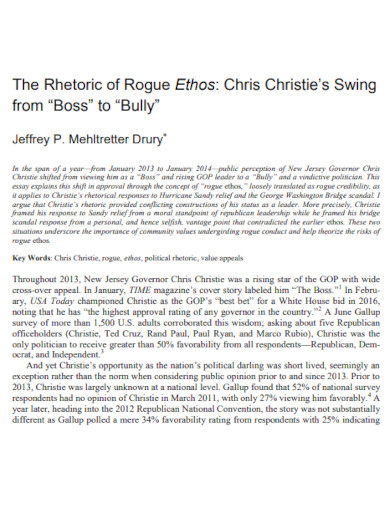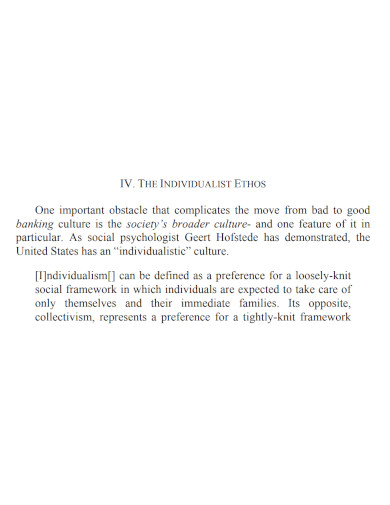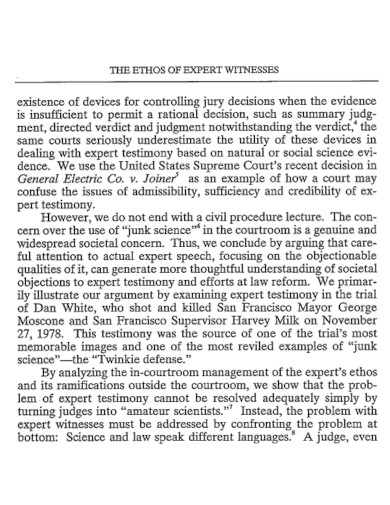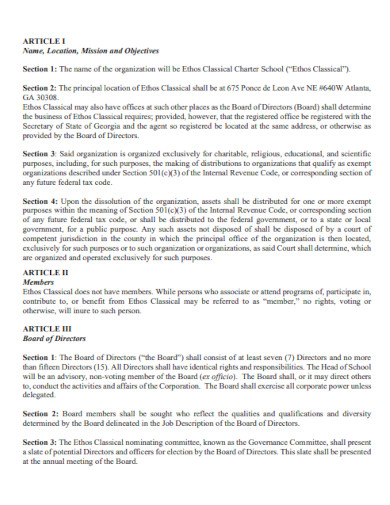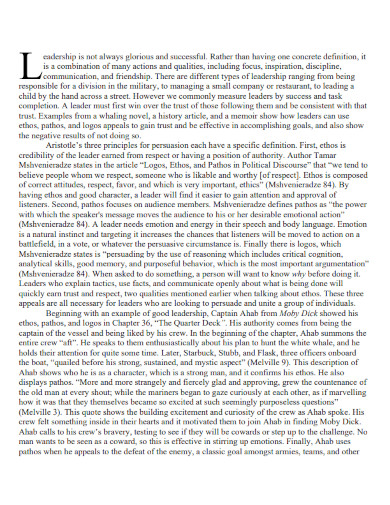99+ Ethos Examples
When companies or businesses use a model, celebrity, or credible source to help create advertisements for their product or services, they are using the principle of ethos. This principle uses these people to influence our decisions to use a specific product or service. By taking advantage of our human nature, companies, and service businesses can ensure that the product or service organically gains traction.
1. Ethos and Pathos
2. Understanding Ethos
3. Ethos FAQs
4. Ellucian Ethos Identity
5. Community Ethos Statement
6. Ethos at the Intersection
7. Ethos Sample
8. Ethos Structure
9. Whats Ethos
10. Ethos Lesson Plan
11. Warrior Ethos as Airman
12. Ethos, Pathos, and Logos
13. Democratic Ethos
14. Milestone Ethos
15. Basic Ethos
16. Ethos Analytics
17. Ethos Best Practice
18. Ethos The Writers Voice
19. Warrior Ethos
20. The Heart of Ethics and Health
21. Ethos Statement
22. Ethos PDF
23. Ethos Rhetorical Analysis Essay
24. Ethos Format
25. Ethos Technology Highlight
26. Standard Ethos
27. Public Ethos
28. Ethos Product Development
29. Ethos Groceries
30. Ethos Notes
31. Ethos Program
32. Ethos, Logos, Pathos Quiz
33. Laws Ethos
34. Ethos Call Interface
35. One Page Ethos
36. Ethos Sheet
37. Ethos Gryphon
38. Multistakeholder Ethos Award Pilot
39. Ethos Example
40. Ethos Draft
41. Ethos Life
42. Ethos Rhetoric
43. Ethos in Writing
44. Ethos Classical
45. Arguing With Aristotle Ethos
46. Ethos The Art of Rhetoric
47. Ethos Persuasion
48. Ethos Argument
49. Types of Ethos
50. Ethos Persuasive Appeals
51. Pathos vs. Logos vs. Ethos
52. Use of Ethos
53. Ethos Business
54. Ethos Investment
55. National Ethos
56. Corporate Ethos
57. Ethos Valuation
58. Professional Ethos
59. Therapeutic Ethos
60. Authentication in Ethos
61. Social Ethos
62. Ethos User Manual
63. Digital Ethos Online
64. Shared Ethos
65. Ethos World
66. Ethos Tech
67. Ethos of Public Health
68. Ethos of Care
69. Ethos and Voice
70. Ethos in Technical Writing
71. The Ethos of Dissent
72. Ethos Charity
73. Ethos Equity
74. Ethos of Life
75. Ethos Statement Example
76. Spiritual Ethos
77. Ethos in Early Chinese Rhetoric
78. Ethos Eros
79. Ethos of Music Art
80. Western Ethos
81. Ethos Example PDF
82. Reframing Ethos Rhetorical Criticism
83. The Ethos Stealer
84. Ethos Worksheet
85. Ethos Trophy
86. Ethos Laboratory
87. Ethos Employment Application
88. General Ethos Example
89. Ethos Percussion Group
90. Ethos Definition
91. Ethos Handbook
92. The Restrictive Ethos in Civil Procedure
93. Logos Ethos
94. The Rhetoric of Rogue Ethos
95. Sample Ethos PDF
96. The Individualist Ethos
97. The Ethos of Expert Witnesses
98. Ethos Classical Example
99. Printable Ethos Example
100. Ethos in Leader
What is Ethos?
Ethos, logos, and pathos are the three modes of persuasion. The Greek philosopher Aristotle defined ethos as one of the three modes of persuasion that uses the target audience’s principle as a way to appeal to them. You can see examples of this in modern-day media when a person of renown and credibility advertises a product or service via advertisements or product placement. This mode of persuasion relies on the people’s earned trust from famous and influential people in a specific theme, context, and tone.
How to Use Ethos as a Literary Device
People often use ethos to persuade and influence people to do or go in a certain direction. One of the lesser-known functions of ethos is its ability to be a literary device or a rhetorical device in both your writing and speech. Using ethos in your literary work allows you to make your characters relatable and approachable.
1.) Selecting a Perspective
Before you will start writing your output, you should first select what perspective you want your reader to have in your book. Planning all perspectives will ensure that you know how you are going to personalize the characters and events in the story. A first-person perspective entails that the reader is going to experience the story through the eyes of a character, often characterized by I statements. Whilst a third-person perspective allows the reader to experience the story with an omnipresent perspective, letting the reader take the place of an unseen and unobservable observer.
2.) Creating the Character
When establishing a character through the principles of ethos, they will need to be relatable and grounded. This is true for all types of genres. Set your characters up to have flaws, interests, weaknesses, and more, so that will outline the perspective or world these characters are living in.
3.) Establishing the Character
The character should undergo an arc where they will actively try to do something for the betterment of themselves or the people around them. This will help ensure that your character is accountable for their actions even if they constantly screw up. People tend to be interested in books and texts with characters that they can relate to; a perfect character without any flaws is a character that is unrelatable in all aspects.
4.) Outlining the Storyboard
After creating a character and setting them up, you can now start creating a storyboard for your story. The story doesn’t have to be too realistic or grounded in reality to be relatable. That is because people will latch on to the characters rather than the plot of the story.
FAQs
What are the differences between ethos, pathos, and logos?
Ethos, pathos, and logos are the three modes of persuasion proposed by the Greek philosopher Aristotle. Ethos is the mode of persuasion that requires the person to appeal to the target audience’s ethics or principles, this is usually in the form of a famous or credible person acting as the persuader. Aristotle describes pathos as the mode of persuasion that requires the person to appeal to the target audience’s emotions, which usually manifests as an emotional plea or story. Lastly, logos is the mode of persuasion that requires the person to appeal to their target audience’s logic, often through the person’s utilization of facts, reasoning, and figures.
What are the advantages of using ethos as a literary device?
Ethos is a great literary device we can use to make our characters trustworthy and relatable to the audience. This will ensure that your audience will have a character or person to latch onto, ensuring that they will read more of the story. Another advantage you obtain when you use ethos as a literary device is its ability to easily create believable characters.
When do you usually use the principle of ethos?
You utilize ethos when you are trying to persuade a group of people of a certain product or service. Using the definition of ethos, you can appeal to your target audience by using a celebrity or a trusted source to support the product or service. Just ensure that this product or service is directly adjacent or related to the celebrity or source advertising said product or service.
The three modes of persuasion are a very interesting and important concept proposed by the Greek philosopher Aristotle. Ethos illustrates how people can easily be persuaded by other people of renown and credibility.


